Genetics
-
 Genetics
GeneticsFaulty gene can turn colds deadly for babies, toddlers
Children with a faulty virus-sensing gene may land in intensive care after a cold.
-
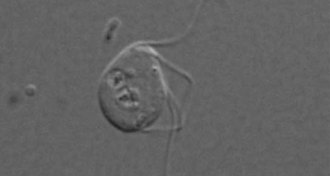 Life
LifeGut microbe may challenge textbook on complex cells
Science may finally have found a complex eukaryote cell that has lost all of its mitochondria.
By Susan Milius -
 Animals
AnimalsHistory of road-tripping shaped camel DNA
Centuries of caravan domestication and travel left some metaphorical tire marks on Arabian camel genes, researchers find.
-
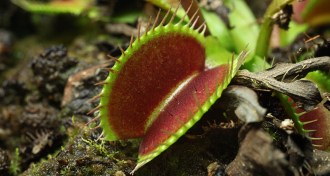 Plants
PlantsVenus flytraps use defensive genes for predation
Genetic analysis suggests that Venus flytraps repurposed plant defenses against herbivores to live the carnivore life.
-
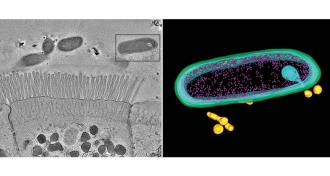 Life
LifeSome Crohn’s genes make cells deaf to messages from good gut bacteria
Genes linked to Crohn’s disease, an inflammatory bowel disease, might make people’s immune cells miss out on helpful messages sent by friendly gut bacteria.
By Meghan Rosen -
 Animals
AnimalsWhy Labrador retrievers are obsessed with food
A genetic variant could explain obesity trends seen in Labrador retrievers.
-
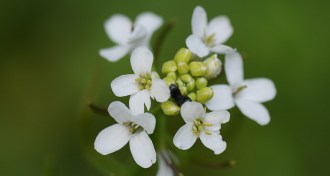 Plants
PlantsPrions may help plants remember
A plant protein has passed lab tests for prionlike powers as molecular memory.
By Susan Milius -
 Plants
PlantsPlants might remember with prions
A plant protein has passed lab tests for prionlike powers as molecular memory.
By Susan Milius -
 Genetics
GeneticsGene-edited mushroom doesn’t need regulation, USDA says
A CRISPR-edited mushroom isn’t like other GMOs, the U.S. Department of Agriculture says.
-
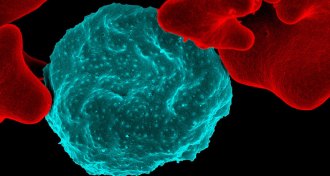 Genetics
GeneticsMalaria parasite doesn’t pass drug immunity to its offspring
Malaria parasites resistant to the antimalarial drug atovaquone die in mosquitoes, a new study finds.
-
 Genetics
GeneticsSome people are resistant to genetic disease
People who should have genetic diseases but don’t may point to new treatments.
-
 Genetics
GeneticsResearchers edit genes in human embryos for second time
Researchers in China deploy CRISPR to alter genes in human embryos again — this time to make cells HIV-resistant.